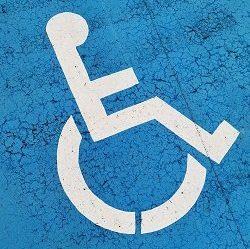While a trust technically becomes the owner of your home when you sign a deed transferring ownership to a grantor trust, rest assured that you will still receive the same real estate tax exemptions and/or benefits that you received when your home was owned in your individual name. Both revocable trusts and irrevocable Medicaid asset protection trusts fall under this category of “grantor trusts.”
What Property Tax Credits and Exemptions Are Available in New York?
Many New York residents depend on property tax exemptions/credits to make ends meet. Prime examples of this are the New York State School Tax Relief Program (STAR) and the Enhanced School Tax Relief (E-STAR). The basic STAR program does not have an age requirement, but the property must be the primary residence of at least one owner. Additionally, all owners and their spouses who live on the property must not have an income of more than $250,000 combined.
The Enhanced School Tax Relief (E-STAR) requires that the property must be the primary residence of at least one owner who is 65 or older by the end of the calendar year in which the exemption begins. Surviving spouses may be eligible to retain the Enhanced STAR benefit. For 2025, the combined incomes of all owners (residents and non-residents), and any owner’s spouse who resides at the property must be limited to $107,300 or less to receive the Enhanced STAR benefit.
There are other exemptions available to senior citizens depending on where they reside. Local governments and school districts in New York State can opt to grant a reduction on the amount of property taxes paid by qualifying senior citizens.
Regardless of a homeowner’s age or income, there are also exemptions available to veterans and those who are disabled. There are three different property tax exemptions available to veterans who have served in the U.S. Army, Navy, Air Force, Marines and Coast Guard. Local governments and school districts may also lower the property tax of eligible disabled homeowners by providing a partial exemption for their legal residence. Those municipalities that opt to offer the exemption also set an income limit.
Trusts Enable You To Settle an Estate Without Probate
Knowing that the property tax benefits will be preserved in a revocable trust or a Medicaid asset protection trust can ease the concerns about engaging in this type of planning. Transferring your house to one of these trusts will prevent your estate from going into probate at your death. Probate is the Court process of validating your Last Will and Testament. The process can take time and delay the distribution of your estate. Beyond probate avoidance, depending on the type of trust you create, it may also provide the additional benefit of protecting the property from being counted as an asset for Medicaid eligibility.
While the concept of transferring your house can feel complicated and the word “irrevocable” seems daunting, there is much that can be gained from this type of planning without the loss of valuable benefits.
Author: Britt Burner, Esq. is a Partner at Burner Prudenti Law, P.C. focusing her practice areas on Estate Planning and Elder Law.










